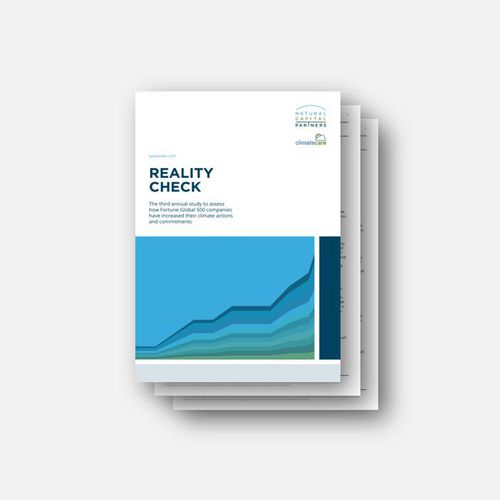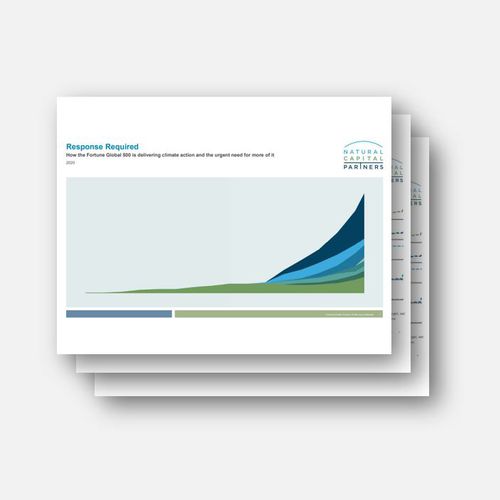Our sixth annual report uncovers key insights and emerging trends in the climate commitments of the world’s largest companies.
Our newly formed Customer Advisory Boards, bringing together 18 sustainability professionals from companies with combined annual revenues of $400 billion, also offer their opinions on the challenges faced by large companies in the report.
Explore three charts illustrating the type of climate commitments being made, and how the world's largest companies are planning to utilize tools like carbon credits to reach their goals below.
45% of companies plan to be net zero by 2050, up from 39% last year and dramatically up from 8% since 2020
42% of companies explicitly state they will use carbon credits to meet a carbon neutral or net zero target. This is up from 40% last year. By supporting verified carbon projects, businesses can enhance stakeholder communication, foster internal climate support and meet their climate objectives. Credits also enable companies to direct funds to impactful climate projects, often located in regions with a lack of investment in climate solutions.
By putting a price on carbon in the business through carbon credits, companies pursuing carbon neutrality and taking action now are almost twice (1.7x) as likely to have near term Science Based Targets across the entire value chain (including Scope 3) than companies that are not carbon neutral or do not plan to be by 2030.
Who are the Fortune Global 500 companies?
This is our sixth year tracking the growth of climate ambition of the Fortune Global 500, which are the top five hundred largest companies in the world by revenue. In 2023, they earned $41 trillion in total revenue, over one-third of global GDP, and employed more than 70 million people. The Energy Transitions Commission, an international think tank focused on economic growth and climate change mitigation, estimates $3.5 trillion per year of capital investment will be needed to build a net zero global economy by 2050. The Fortune Global 500 earned a total of $3 trillion in net profits last year, seemingly giving them the capacity to increase their climate investments and make a meaningful contribution to the global goal.
In addition to the importance of climate action within their own operations, Fortune Global 500 companies have significant influence on their suppliers, customers and the wider world of business and government. The efforts taken by the companies highlighted in this report can provide a benchmark for broader changes in the private sector sustainability landscape. However, the focus on this group does not diminish the value of many other businesses – small, medium, and large – throughout the world, who have also realized the urgency of our climate situation and are already making real change.
PREVIOUS YEARS' REPORTS BELOW:


















